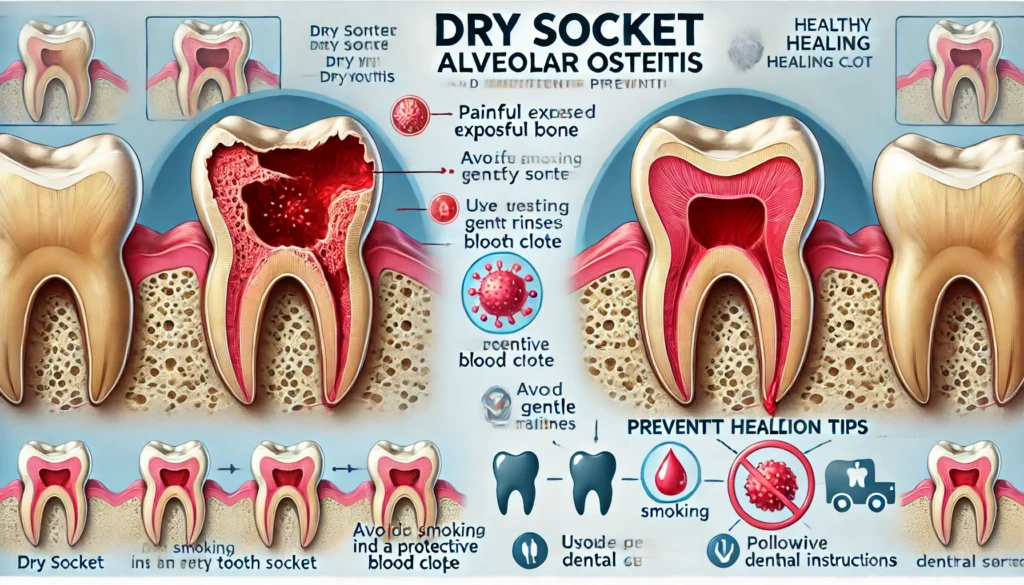Does getting a tooth pulled hurt? This is one of the major questions bothering many people when deciding about any tooth extraction. It becomes a question floating in most people’s heads during any mouth preparation for extraction, and this, of course, puts apprehension and hesitancy into the patient’s mind. Much of this has been alleviated by the advancements in modern day dentistry, which have made the whole procedure almost painless and most comfortable.
Does getting a tooth pulled hurt? That depends, again, upon various factors which can include a complexity of an extraction, patients’ pain toleration, or skill of dentists. Below, we’ve written a broad overview of how tooth extraction would work, the procedures and aspects a patient is going to pass through during extraction, and in post extraction processes, too.
Understanding tooth extraction

Understanding tooth extraction
Extraction is the procedure of removing a tooth from its socket in the jawbone. Overcrowding, trauma, and serious decay or infection is some of the reasons it was removed. Extractions are broadly categorized into two types.
| Type of Extraction | Description |
| Easy Extraction | Extraction of an easily visible tooth above the gum line using local anesthesia and dental instruments such as forceps. |
| Extraction via Surgery | More complex procedure requires an incision in the gum, sometimes even breaking the tooth into smaller pieces before removal. Usually performed in the case of impacted teeth. |
Will the extraction of a tooth hurt?
Fortunately, you will not feel any pain as the extraction is done. The area is fully numbed with local anesthesia to enable this. You may feel slight discomfort or brief sting from the needle when receiving local anesthesia, but that feeling goes away very fast once the anesthetic takes effect.
After doing the numbing, you are expected to feel the push and pull as the dentist dislodges and removes the tooth but should not feel any sharp pain. And if at any point you feel some discomfort, the dentist can provide extra injections so that you can be comfortable throughout the entire procedure. For surgical extractions, especially if general anesthesia or sedation is involved, you may not recall much about the whole procedure. Stressing over pain control and comfort is an integral part of the entire philosophy of surgical extraction.
What Can You Anticipate Following the Tooth Extraction?
Discomfort or tenderness might arise after the anesthesia has faded due to the extraction process, but this is merely a possibility. However, the actual pain would vary greatly according to difficulty of extraction and the personal pain threshold of the individual.
Common sensations after the procedure include.
- Mild to moderate soreness in the extraction site
- Swelling and slight bruising around the jaw
- A dull, aching pain that subsides over a few days
Pain Management and Recovery
Effective management of post extraction pain ensures smooth recovery. Here’s how to keep it comfortable at the healing process.
1. Take the pain medication the way it was prescribed
Your dentist would most probably prescribe either some pain medication or may recommend the use of over the counter pain pills such as ibuprofen or acetaminophen as an alternative.
2. Ice the area
Ice will help reduce swelling or dull discomfort from the area when applied for 15-20 minutes.
3. Rest and take it easy
Activities could promote blood circulation to the extraction site and hence enhance bleeding and discomfort.
4. Follow Food Intake
Stick with soft food such as yogurt, mashed potatoes, and soups for the first couple of days at least. Crunchy, hard, or very hot food should be avoided as this may irritate the wound a bit.
5. Clean the Extraction Site
Just follow your dentist’s proper wound care guidance. Gently rinsing with warm salt water after 24 hours would deter infection from occurring.
6. Limit smoking and alcohol
These delay the healing process and can lead to complications like dry socket.
What is dry socket and how to prevent it?

Dry socket, according to descriptions, occurs as a result of the dislodgement or solution of the clot formed in the socket immediately following extraction before that blood clot, thus exposing it to the underling bone as well as nerve. This will be extremely painful and prolongs the recovery time. Do not get dry socket.
- Avoid drinking through a straw.
- Do not spit forcefully.
- Do not smoke.
- Pay attention to what your dentist says regarding follow-up care.
You should see your dentist immediately if you are in severe pain a few days after the extraction.
How long will the pain last?
Most patients peak within the first 24 to 48 hours. It then tapers off over the next few days. The end of the first week should have more pain eased. Since every person heals at a different rate, it usually takes a few weeks to a number of months for the extraction site completely to heal. Considering the variable healing process of every individual; it is usually around some weeks to a couple of months for the extraction site to fully heal.
Does It Hurt Some People More to Have a Tooth Pulled?
Individuals perceive pain differently. While some people may find the discomfort more severe, others may have a high pain threshold. The following elements could affect how much pain a person feels.
- Extraction Complexity: Surgical extractions and wisdom teeth are typically pain friendly compared to other extractions.
- Potential pre-existing dental conditions: The extraction site may be weak to infection, inflammation, or gum disease.
- Individual pain threshold: Necessarily, people have a greater sensitivity towards pain than other people.
When should you visit your dentist?
Some pain and swelling are to be expected, but you should see your dentist if you have.
•Increasing or severe pain after a few days
•heavy bleeding that does not stop
•Infection symptoms include fever, pus, or an unpleasant aftertaste.
•Numbness or tingling that persists
FAQs
1. When should a person fully recover after an extraction?
Healing time will vary for each patient, but in most cases, complete recovery will take between 7 and 10 days. Full healing of the extraction site may take several weeks.
2. Am I capable of eating once a tooth has been pulled out?
Yes, but for a few days, it should take only soft foods. Avoid all spicy hot and crunchy foods because they may irritate the wound a bit.
3. What if extraction causes severe pain?
There may be an infection or a dry socket problem if the excruciating pain continues or becomes worse after three to four days.
4. Is bad breath normal after a tooth extraction?
A mild metallic or foul taste is expected because of the blood in the mouth, but a foul odor or taste may indicate infection. If that occurs then see your dentist.
Conclusion
The real question would be, Does getting a tooth pulled hurt? Anesthesia works wonders for tooth extraction, so pain wouldn’t be what you will go through during the procedure. But there will be discomfort thereafter. Thankfully, with the evolution of pain-relieving techniques, your recovery from this procedure will be as smooth and comfortable as possible. Aftercare instructions from your dentist must strictly be adhered to if you wish to avoid undue pain and promote faster healing.
But on a lighter note, any extraction that you’re preparing for is now a smooth sail compared to how it was in the past. The advancement of dentistry has worked toward allowing the extraction procedure itself to be less terrifying. So don’t let fear get the better of your oral health!
Read more Articles about Health and other categories at usauptrend.co.uk




